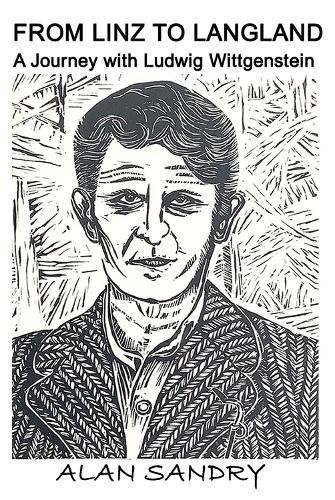Readings Newsletter
Become a Readings Member to make your shopping experience even easier.
Sign in or sign up for free!
You’re not far away from qualifying for FREE standard shipping within Australia
You’ve qualified for FREE standard shipping within Australia
The cart is loading…






This title is printed to order. This book may have been self-published. If so, we cannot guarantee the quality of the content. In the main most books will have gone through the editing process however some may not. We therefore suggest that you be aware of this before ordering this book. If in doubt check either the author or publisher’s details as we are unable to accept any returns unless they are faulty. Please contact us if you have any questions.
Ludwig Wittgenstein was one of the greatest philosophers of all time. Between 1942-1947 he regularly visited Swansea, primarily to see his friend and former student Rush Rhees, who was lecturing at Swansea University. Together they would work on philosophical matters that eventually become the posthumously published Philosophical Investigations. Wittgenstein thoroughly enjoyed his time in Swansea, and he spent a lot of time walking around the city and along its beaches. He met a variety of fascinating characters, some academic, some proletariat. This play imagines some of those conversations, which cover a variety of issues.
Wittgenstein arrives in Swansea and is met by Perkins, a cabbie. He is taken to his digs in Langland Road where he interacts with his landlady Mrs Mann. Wittgenstein spend time on campus and two students, Carwyn and Rebecca, have strong opinions about the great philosopher. The key figure of Rush Rhees, sitting in his office, engages in a dialogue with Wittgenstein. One evening Wittgenstein comes across the dramatist and activist Saunders Lewis. They talk politics and related matters. Wittgenstein lodged at two addresses at Cwmdonkin Terrace from 1944-47. In this scene he argues with Reverend Morgan about religion. In 1947 Wittgenstein's partner came to Swansea and Richards took the famous photograph of Wittgenstein at Brynmill Train Station. Wittgenstein loved to wander the bays and this scene sees him contemplating life at Langland Bay. The final scene captures Wittgenstein at High Street Station as he departs Swansea for the last time.
$9.00 standard shipping within Australia
FREE standard shipping within Australia for orders over $100.00
Express & International shipping calculated at checkout
This title is printed to order. This book may have been self-published. If so, we cannot guarantee the quality of the content. In the main most books will have gone through the editing process however some may not. We therefore suggest that you be aware of this before ordering this book. If in doubt check either the author or publisher’s details as we are unable to accept any returns unless they are faulty. Please contact us if you have any questions.
Ludwig Wittgenstein was one of the greatest philosophers of all time. Between 1942-1947 he regularly visited Swansea, primarily to see his friend and former student Rush Rhees, who was lecturing at Swansea University. Together they would work on philosophical matters that eventually become the posthumously published Philosophical Investigations. Wittgenstein thoroughly enjoyed his time in Swansea, and he spent a lot of time walking around the city and along its beaches. He met a variety of fascinating characters, some academic, some proletariat. This play imagines some of those conversations, which cover a variety of issues.
Wittgenstein arrives in Swansea and is met by Perkins, a cabbie. He is taken to his digs in Langland Road where he interacts with his landlady Mrs Mann. Wittgenstein spend time on campus and two students, Carwyn and Rebecca, have strong opinions about the great philosopher. The key figure of Rush Rhees, sitting in his office, engages in a dialogue with Wittgenstein. One evening Wittgenstein comes across the dramatist and activist Saunders Lewis. They talk politics and related matters. Wittgenstein lodged at two addresses at Cwmdonkin Terrace from 1944-47. In this scene he argues with Reverend Morgan about religion. In 1947 Wittgenstein's partner came to Swansea and Richards took the famous photograph of Wittgenstein at Brynmill Train Station. Wittgenstein loved to wander the bays and this scene sees him contemplating life at Langland Bay. The final scene captures Wittgenstein at High Street Station as he departs Swansea for the last time.